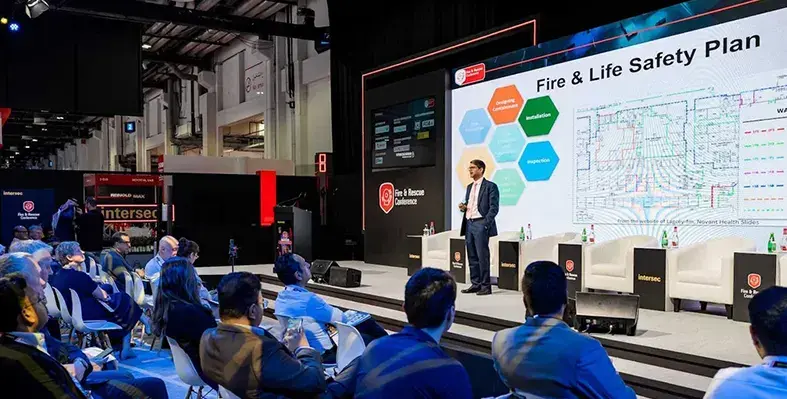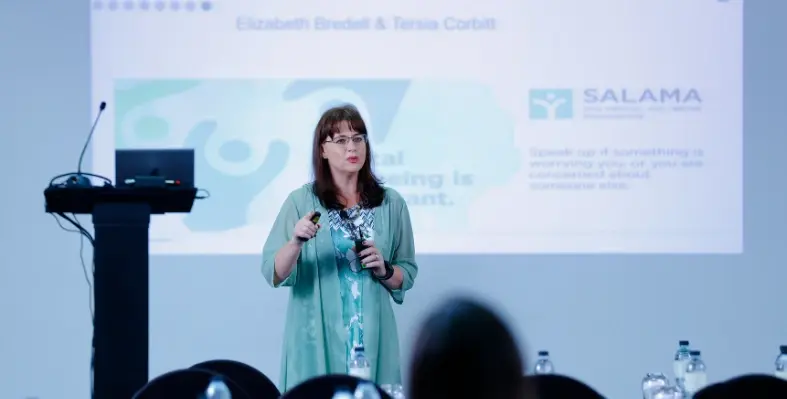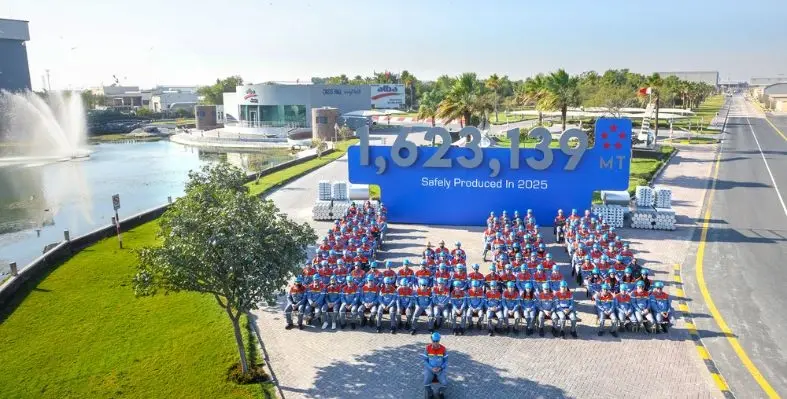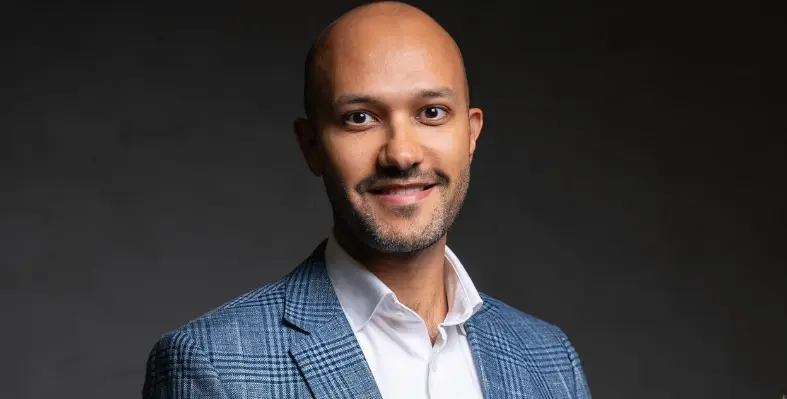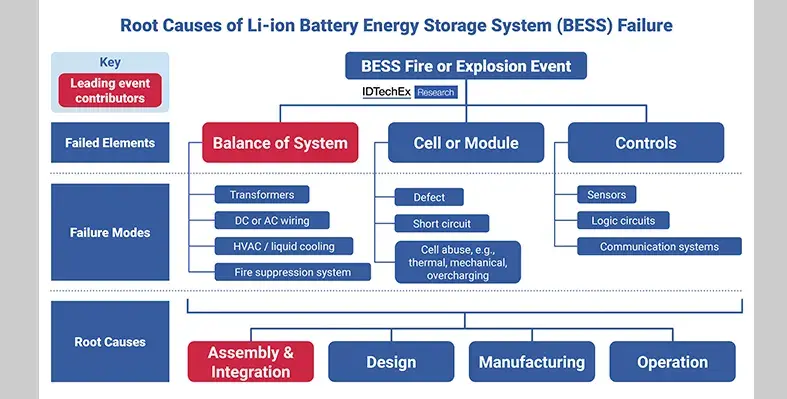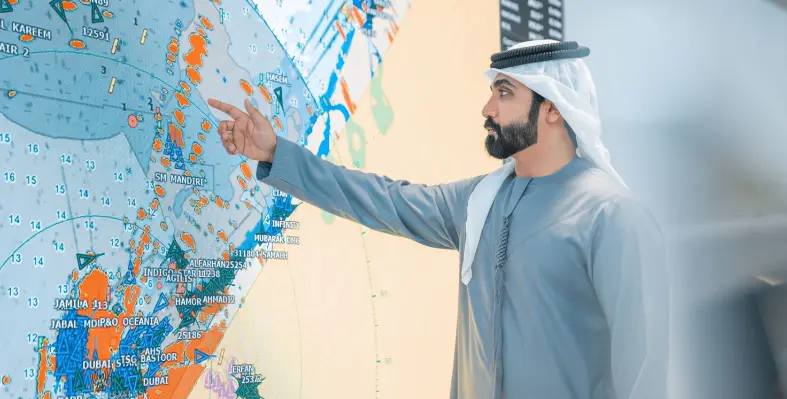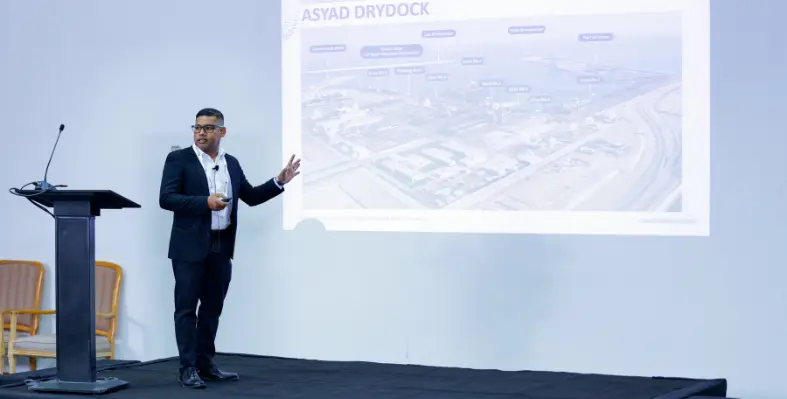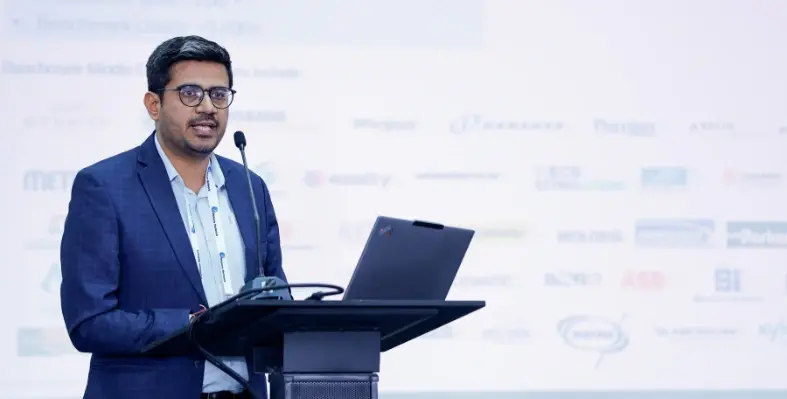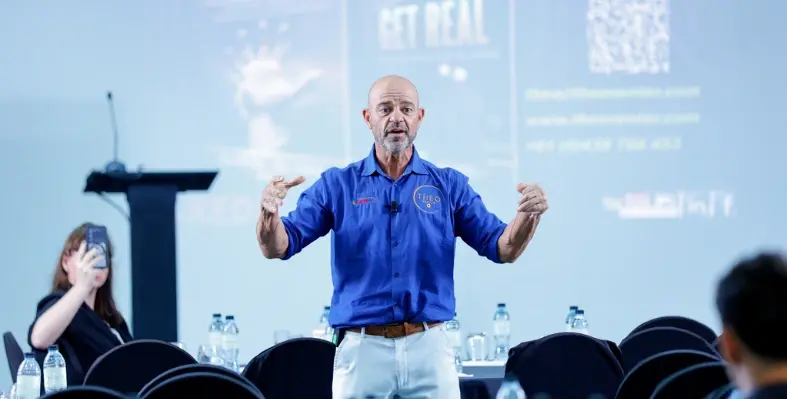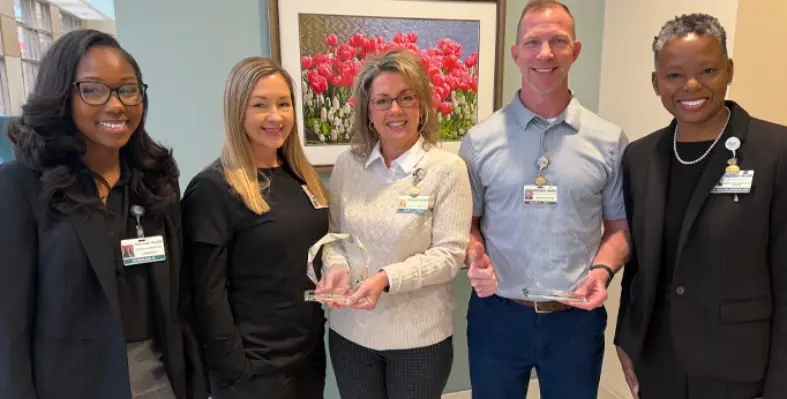Industrial Insights
Industrial Insights
- Details
- Louise Waters
- Industrial Insights
- Date: 8th January 2026
- Year: 2026
Intersec returns to the Dubai World Trade Centre from 12-14 January 2026, with the introduction of several new initiatives
They include the Passive Fire Day, the Control Room Innovation Theatre, and co-located event, FCIA–NFCA PFPCON ’26 Dubai.
Focus on passive fire sector
Hosted in collaboration with the Association for Passive Fire Protection (ASFP), the Passive Fire Day, which takes place on 14 January, has been designed to elevate the passive fire sector into a recognised professional discipline within the built environment. Passive fire protection refers to the built-in fire safety measures that continuously work to contain fire and smoke, protect escape routes, and maintain structural integrity. These include fire-resistant walls and floors, fire doors, fire stopping and cavity barriers.
Senior ASFP representatives and industry collaborators will lead presentations and panel discussions covering early engagement in design, regulatory alignment, best practice in fire door specification and installation, and the growing importance of competence across the passive fire supply chain.
Another new feature related to passive fire is the FCIA–NFCA PFPCON ’26 Dubai, taking place from 12–14 January 2026. Co-located with Intersec 2026, and presented by the Firestop Contractors International Association (FCIA) and the National Fireproofing Contractors Association (NFCA), the event connects global experts, innovators and practitioners to advance standards, competency and collaboration across the passive fire sector.
Dishan Isaac, show director of Intersec at Messe Frankfurt Middle East, said, “Passive fire protection underpins the safety of the built environment, yet it has historically been treated as a technical afterthought rather than a professional discipline. By integrating Passive Fire Day and PFPCON ’26 Dubai into Intersec, we are creating a platform that brings competency, standards and accountability into sharper focus, while encouraging earlier engagement and stronger collaboration across the entire construction and life-safety value chain.”
Control Room Innovation Theatre
Also launching at Intersec 2026 is the Control Room Innovation Theatre, delivered in partnership with the International Critical Control Rooms Alliance. Sessions will examine how cognitive control rooms are emerging, with AI and advanced data analytics enabling faster, more informed decision-making in high-pressure situations. Discussions will also explore the shift towards integrated command centre operations, highlighting how breaking down organisational and sector silos can deliver more coordinated, agile and effective responses to complex incidents.
A strong emphasis will be placed on the human dimension of control room performance, with sessions focused on operator wellbeing and the critical link between workforce empowerment, resilience and operational outcomes.
In addition to the new features, Intersec 2026 will launch a series of exclusive, invitation-only Executive Roundtables that bring together senior leaders from government, industry, and technology for focused, high-level dialogue on the most pressing challenges facing the security, safety, and fire protection sectors. They include Redefining Crisis Management for Critical Infrastructure Protection, delivered by PwC Middle East; Governing the Blue: Intelligence-led Security for Gulf Maritime Boundaries, and Defending the Digital Backbone: Securing National Infrastructure in the Era of AI and Hybrid Threats.
The forthcoming edition will also aunch the Innovation Trail, an interactive feature that spotlights exhibitors showcasing innovative products and solutions in the security, safety, and fire protection industry.
Intersec 2026, which benefits from the strategic support of the General Command of Dubai Civil Defense (DCD) and the Security Industry Regulatory Agency (SIRA), will host over 1,200 exhibitors from more than 60 countries across five core sectors: Homeland Security & Policing, Cybersecurity, Commercial & Perimeter Security, Fire & Rescue, and Health & Safety. More than 50,000 visitors are expected to attend.
- Details
- Sania Aziz
- Industrial Insights
- Date: 8th January 2026
- Year: 2026
At Emirates Global Aluminium (EGA), occupational safety extends beyond operational protocols to a comprehensive commitment to mental wellbeing.
Under the leadership of Elizabeth Bredell and with the practical expertise of Tersia Corbett, the company has adopted a structured approach that demonstrates safety is as much about mental health as it is about the prevention of physical hazards.
EGA’s safety philosophy is shaped by Salama, its mental wellbeing programme. Managed within the safety department, rather than being limited to Human Resources, Salama is built upon proactive engagement, clear communication, and strong leadership involvement. What began as a campaign soon became a core cultural value, with the company reinforcing this through regular webinars, leader-led videos, and highly visible activities on site. By giving the initiative a name and promoting it openly, EGA has fostered genuine ownership and accountability at every level.
A key aspect of Salama is the presence of trained Mental Health First Aiders and mental health advocates throughout all operations. These individuals are not only prepared to provide support but also to recognise early signs of stress, particularly among those regularly exposed to high-risk working environments. EGA requires all safety superintendents and supervisors to complete Mental Health First Aid training, ensuring that a robust support system exists at every operational level. The initiative encourages open dialogue, reduces stigma, and empowers employees, including those who may be reluctant to come forward, to seek the help they need.
These efforts have yielded tangible results. Since Salama’s implementation, EGA has seen marked reductions in the Total Recordable Frequency Rate (TRFR) as well as lost time injuries, even as production demands have risen. The experience of the COVID-19 pandemic further demonstrated the importance of this approach, as increased leader visibility and direct engagement maintained both morale and safety performance during periods of heightened stress and fatigue.
Tersia Corbett highlighted the use of additional tools, such as the Flourish DX platform for surveying psychosocial risk, and described how data-driven interventions are designed to address issues within high-risk teams. EGA’s Employee Assistance Programme (EAP) and steady internal communication ensure that support remains accessible to all, including contractors.
Elizabeth’s experience following a serious workplace incident illustrated the significant legal responsibilities that safety professionals face. While she was confronted with the real possibility of imprisonment, the systems and training she helped establish provided not only protection for the workforce, but also critical accountability. In modern industry, occupational safety is closely linked to care for individuals, unwavering attention to risk, and a clear understanding of legal obligations.
- Details
- Sania Aziz
- Industrial Insights
- Date: 7th January 2026
- Year: 2026
Aluminium Bahrain B.S.C. (Alba), the world’s largest aluminium smelter on a single site, achieved a record production of 1,623,139 metric tonnes in 2025, up from 1,622,261 metric tonnes in 2024, surpassing its annual target despite disruption caused by an industrial fire late in the year.
The milestone highlights the company’s operational resilience, disciplined execution and focus on sustainable growth.
Alba also closed 2025 with more than 42 million work hours without a Lost Time Injury (LTI), marking two consecutive years of LTI-free operations for the first time in its five-decade history.
Chief executive officer Ali Al Baqali praised employees and contractors for their commitment and performance. He added that Alba will continue to strengthen its operations through in-house initiatives aimed at delivering sustained improvements in production efficiency and throughput.
“This record is more than a production figure; it reflects our ability to overcome adversity and set new benchmarks in both operational performance and safety. We’ll build on this success, push our performance further, and continue to unlock the full potential of our people and operations.
I’m also proud and grateful to everyone who contributed to making 2025 a truly historic year for Alba.”
- Details
- Sania Aziz
- Industrial Insights
- Date: 6th January 2026
- Year: 2026
As the Middle East accelerates the adoption of smart buildings and next-generation construction technologies, the need for clear regulatory frameworks and internationally aligned standards is becoming increasingly critical.
The International Code Council (ICC) will contribute to two technical symposiums at Intersec 2026, taking place from 12-14 January at the Dubai World Trade Centre. ICC’s participation underscores its commitment to supporting the safe, scalable and compliant evolution of the built environment across the region.
Through its involvement, ICC will engage in policy-driven dialogue and technical knowledge exchange, reflecting its integrated approach to enabling innovation while safeguarding safety, performance and resilience. Mohamed Amer, Managing Director, ICC MENA, will represent the organisation at both the Smart Building Summit 2026 and FCIA–NFCA PFPCON ’26, which are being held alongside Intersec 2026.
At the Smart Building Summit 2026, ICC will take part in the panel discussion titled “Navigating the Global Regulatory Landscape: Standards, Policies & Incentives for Smart Buildings.” The session will explore how regulatory frameworks, certification schemes and government incentives are influencing smart building adoption across the region. ICC’s contribution will focus on the role of globally recognised codes and standards in aligning international best practice with local regulatory requirements, while supporting performance assurance and long-term operational efficiency within smart building ecosystems.
ICC will also deliver a technical presentation at FCIA–NFCA PFPCON ’26, a specialist symposium held during Intersec 2026 in Dubai. Entitled “Building the Future: Enabling Safe Adoption of 3D Printing & Modern Methods of Construction,” the presentation will examine regulatory, safety and compliance considerations linked to emerging construction technologies. It will further highlight how performance-based codes and standards can support responsible innovation while maintaining structural integrity, fire safety and quality assurance.
By linking smart building regulation with advanced construction practices, ICC continues to advocate a coordinated, standards-led approach to delivering safer, more resilient and future-ready built environments across the Middle East.
- Details
- Sania Aziz
- Industrial Insights
- Date: 5th January 2026
- Year: 2026
The Ministry of Health and Prevention (MOHAP), in cooperation with the Fujairah Government Human Resources Department, organised a workshop in the Emirate of Fujairah under the theme “Health-Supportive Work Environment”, reviewing the status of 14 entities assessed against the emirate’s health-supportive workplace standards.
Held towards the end of 2025, the initiative aims to enhance institutional performance while translating national health priorities into practical workplace applications for this year.
The workshop also aligns with MOHAP’s policy of integrating preventive health and wellbeing concepts into organisational systems, contributing to improved employee health, higher performance efficiency and an enhanced quality of life. It further reflects national priorities to build a more balanced and sustainable society.
During the session, MOHAP reviewed the results of assessments conducted across several federal and local entities in Fujairah. Discussions focused on developing a shared understanding of the role that individual health and healthy lifestyles play in shaping positive workplace environments. Participants also examined health-related challenges associated with work patterns and explored ways to strengthen institutional capacity to analyse existing conditions and develop practical, innovative solutions that support employee wellbeing, sustained performance and work–life balance.
The workshop addressed the objectives of the “Health-Supportive Work Environment” project, which forms part of the implementation plan for the National Guideline for Health-Promoting Workplace 2025. The guideline provides a comprehensive framework for policies that support physical, mental and social wellbeing, while aiming to reduce health risk factors, promote positive behaviours and enhance prevention and early detection. These measures are intended to improve job satisfaction, public health outcomes and long-term institutional sustainability.
Participants were also briefed on the approved framework for establishing healthy workplaces, beginning with environmental assessment and gap analysis, followed by programme planning, prioritisation, implementation and periodic impact measurement. Key areas discussed included strengthening organisational policies, promoting mental wellbeing, encouraging physical activity, improving nutrition patterns and adopting a holistic approach to employee health.
The workshop further explored the main pillars of the National Guideline for Health-Promoting Workplaces, which include institutional support and governance, mental health and wellbeing, healthy lifestyle practices, occupational health and safety, health screening and prevention, maternal health support and inclusive workplace practices for People of Determination.
H.E. Dr Hussain Al Rand, Assistant Undersecretary for the Public Health Sector at MOHAP, stressed that the Ministry adopts an integrated preventive approach that places human health at the centre of national policies and plans. “Healthy workplaces are among the key drivers of wellbeing and quality of life,” Al Rand said, noting that implementing the national guideline reflects a practical commitment to turning assessments into clear, actionable plans built on partnership and institutional integration.
Nouf Khamis Al Ali, Director of the Health Promotion Department at MOHAP, said the workshop marked a transition from assessment to planning and implementation for participating entities. She added that analysing Fujairah’s results and identifying improvement opportunities supports efforts to strengthen health-supportive work environments, noting that investment in employee wellbeing reflects the maturity and sustainability of institutional policies.
- Details
- Louise Waters
- Industrial Insights
- Date: 2nd January 2026
- Year: 2026
Major battery energy storage system (BESS) fires have drawn attention to the impacts of Li-ion thermal runaway
These safety incidents can be catastrophic, causing harm to on-site personnel, hazards to health and environments with the release of toxic volatile organic compounds (VOC), and large financial and asset loss. BESS developers are adopting various passive and active thermal management materials and technologies to improve the safety of their Li-ion BESS technologies.
IDTechEx’s new report “Thermal Management, Fire and Explosion Protection for BESS 2026–2036: Materials, Technologies and Players”, addresses the root causes and impacts of BESS failure, forecasting that this market will reach US$25.4bn in value by 2036.
Root causes and impacts of Li-ion BESS failure
The root cause of thermal runaway and failure in BESS can be due to poor design, manufacturing, assembly and integration, or operation of Li-ion BESS technologies. Many of the BESS incidents recorded globally suggest that integration and assembly of BESS are root causes of failure, with the balance of system (BOS) being a leading contributor. The BOS could include DC and AC wiring, HVAC subsystems, and safety elements, e.g., fire suppression systems. This was what caused the Victoria Big Battery Li-ion BESS fire, where during commissioning, a leak in the coolant system led to the fire. With the capacity of Li-ion BESS containers and grid-scale project sizes increasing, the severity of thermal runaway events, and the impacts on the BESS market, could become more severe.
BESS fires have also led to markets stagnating. For example, South Korea faced a reduced number of installed BESS technologies after many Li-ion battery fires in 2018. The financial implications of BESS fires and explosions for the BESS developer can be immense, eroding wider customer trust in the Li-ion BESS market and leading to some customers turning to safer energy storage (ES) technologies, e.g., redox flow batteries (RFB), even if these come with higher Capex.
Addressing Li-ion BESS failure and large-scale fire testing
More stringent checks during commissioning and operation of BESS and workforce training could be key methods to minimizing BESS failure, the report suggests. If BOS components are provided by third parties, then further communication between parties may be needed to ensure the entire system operates harmoniously.
Sharing knowledge of BESS failure root causes from the field could improve developer understanding and benefit the wider market, but enforcing such transparency is challenging, as it could unfairly implicate third parties such as cell or component suppliers. Although advanced sensors and battery management systems (BMS) can help identify failure mechanisms, the complexity and destructive nature of thermal runaway events can prevent precise root-cause determination. Therefore, BESS developers could focus on ensuring systems can effectively react to and contain thermal runaway, using measures like robust fire suppression and gas venting to prevent cascading failures between BESS units.
In fact, many regulations do not require multi-unit or large-scale BESS safety testing, leaving developers unaware of the potential impact of cascading fires in large, GWh-scale projects. However, in the US, the upcoming 2026 edition of NFPA 855 will begin to address this by requiring large-scale fire testing (LSFT) (installation-level test) with UL 9540A to demonstrate that BESS installations can contain thermal runaway without propagation to neighbouring units.
Some key BESS developers including Sungrow, BYD, and Huawei have started conducting large-scale fire tests. This could be a trend that spreads globally and should promote safer Li-ion BESS systems, but this will come with added costs for BESS developers.
- Details
- Sania Aziz
- Industrial Insights
- Date: 31st December 2025
- Year: 2025
Dubai Maritime Authority (DMA), part of the Ports, Customs and Free Zone Corporation, has announced the activation of its final marine traffic management plan for New Year’s Eve 2026, aimed at enhancing maritime safety and ensuring smooth navigation during peak celebrations.
The plan will be in force from 22:00 on 31 December 2025 until 02:00 on 1 January 2026, and will cover high-density maritime areas including Dubai Marina, Dubai Harbour and Palm Jumeirah. Measures include the introduction of a one-way navigation system before and after midnight, a temporary suspension of navigation during the transition period, and the closure of marine traffic beneath the Palm Jumeirah bridges throughout the operational window.
Under the plan, vessels will be classified by size, with designated routes and mandatory time windows assigned to each category to reduce congestion and minimise the risk of collisions.
Sheikh Dr Saeed bin Ahmed bin Khalifa Al Maktoum, Executive Director of Dubai Maritime Authority, said the measures reflect the Authority’s commitment to maintaining the highest maritime safety standards and ensuring navigational efficiency, in line with Dubai’s status as a global destination for major events.
He added that patrol and monitoring teams will operate continuously in coordination with relevant entities, with immediate legal action taken against violators. The plan also includes strict controls on anchoring and drifting, regulation of mooring areas, and full compliance with international regulations for the prevention of collisions at sea.
DMA emphasised that all vessel owners, maritime agents, marinas, yacht clubs and recreational boat operators must fully comply with the approved instructions to ensure a safe and organised maritime environment during the celebrations.
The Authority also advised marine users to closely monitor weather conditions, noting the potential for unstable conditions during New Year’s Eve.
In preparation for the festivities, DMA held a coordination workshop with strategic partners and marina operators to review operational readiness. Discussions covered vessel movement schedules, patrol arrangements, anchoring rules, emergency procedures and compliance mechanisms, ensuring integrated action and the smooth flow of marine traffic during the New Year 2026 celebrations.
- Details
- Sania Aziz
- Industrial Insights
- Date: 30th December 2025
- Year: 2025
In an era where industrial landscapes are rapidly shifting, Asyad Drydock stands out as a testament to the power of strategic innovation. The company's Health Safety & Environment Head Ubaidul Haq addressed the HSE MENA 2025 conference, where he talked about the transformation of traditional shipbuilding and repair, infusing it with cutting-edge technologies and a holistic approach to health, safety, and environmental stewardship.
The foundation of Asyad Drydock’s success lies in its comprehensive infrastructure: encompassing two dry docks, five auxiliary docks, a floating dock, and a dedicated fabrication area. Its commitment to excellence is underscored by a suite of internationally recognised certifications, ranging from ISO 9001 to 22301 for business continuity management. These achievements not only bolster operational standards but embody a culture of accountability and resilience.
Central to this cultural shift is the integration of advanced safety systems. The implementation of a centralised fire alarm system, harmonised across all facilities, ensures rapid response to emergencies, whilst extensive CCTV coverage (now augmented by AI) reinforces both security and situational awareness.
Rather than relying solely on human vigilance, Asyad Drydock’s approach leverages smart technology to detect anomalies such as unauthorised access, non-compliance with personal protective equipment (PPE) standards, and unusual activities, with automatic notifications routed to the appropriate level of management. This digital ecosystem transforms workplace safety from a reactive protocol into a proactive shield.
Mr Haq is especially attuned to the importance of Health, Safety, and Environment (HSE) digitalisation. The yard’s innovative HSE software not only facilitates comprehensive reporting, incorporating both registered and anonymous submissions, but also nurtures a safety-conscious mindset across a sizeable, diverse workforce. By democratising safety oversight, it empowers every worker to contribute to risk mitigation.
Looking beyond the present, Asyad Drydock is pioneering the use of virtual reality for immersive operator training, and robotics to automate hazardous tasks such as blasting. These developments not only elevate operational efficiency but significantly reduce exposure to occupational risks. Ambitious plans are also under way for digital dashboards that present real-time safety analytics, drone-assisted inspections for hard-to-reach areas, and camera-driven automation for emergency drills.
Environmental responsibility features prominently: the transition from grit blasting to hydro blasting, adoption of government-mandated waste treatment processes, and stringent controls to prevent marine pollution all demonstrate a progressive ethos, aligning operations with emerging regulatory and societal expectations.
Ultimately, Asyad Drydock serves as a microcosm of the maritime industry’s future, where digital transformation, environmental stewardship, and uncompromising safety standards intersect, forging a resilient path forward.
- Details
- Sania Aziz
- Industrial Insights
- Date: 26th December 2025
- Year: 2025
In a recent presentation during the HSE MENA 2025 conference, Chandan Tiwari from Benchmark Gensuite offered an insightful exploration of how artificial intelligence (AI) can transform the analysis and management of compliance-related documentation, especially for tasks like permit reviews.
Chandan began by contextualising the practical challenges organisations face when dealing with complex legal and best-practice obligations embedded within official documents.
To address this, he introduced an AI-powered workflow, which begins with analyzing permits or documents to identify their category and extract distinct operational or regulatory conditions.
Chandan’s demonstration centered around the Compliance Calendar, a tool designed to deconstruct documents into actionable requirements. The system automatically compiles these requirements into specific tasks, assigns them to relevant individuals across the organisation, and enables ongoing communication through integrated email notifications. This process ensures clear responsibility, enhances accountability, and allows organisational leaders to track the status of ongoing and completed tasks in real-time.
Recognising that change management and technology adoption carry risks, Chandan addressed common concerns voiced by stakeholders. For instance, he referenced feedback from a large oil and gas company about potential risks of de-skilling employees if AI tools are relied on too heavily, particularly when drafting responses or managing critical compliance outcomes.
Chandan acknowledged these apprehensions, emphasising the need for organisations to strike a balance, leveraging AI for tasks that surpass human capacity, such as sifting through hundreds of thousands of incident records, while still valuing human expertise and oversight.
Chandan further reassured attendees about the ethical and secure use of AI. He explained that the solution can operate not only in publicly available domains but also in “controlled, isolated” environments, ensuring that sensitive data remains protected. In response to questions about privacy, Chandan clarified that robust safeguards like automated facial blurring are implemented to prevent unauthorised identification.
This attention to privacy extends to the data itself; only anonymised records, regulatory incident reports, or customer-donated data with explicit consent are used in aggregate analyses. All organisational data remains encrypted and inaccessible to outsiders or even other entities within the same organisation.
Chandan concluded by inviting interested participants to visit the Benchmark Gen Suite booth to discuss the wide range of AI-powered compliance workflows and industry use cases available.
Through his presentation, Chandan highlighted the potential for AI to deliver both enhanced efficiency and stronger data governance, provided its implementation is guided by best practices in privacy, transparency, and human oversight.
- Details
- Sania Aziz
- Industrial Insights
- Date: 25th December 2025
- Year: 2025
At the HSE MENA 2025 conference, attendees were moved by a deeply personal and compelling story shared by Theo, an Australian worker and safety advocate.
Theo captivated the audience with a harrowing account of a life-altering electrical accident and the lessons he hopes will inspire safer practices across industries.
Theo recounted the morning that changed his life: while working on high-voltage power lines, he momentarily set aside his insulated gloves to finish what seemed like a minor task.
That decision triggered a catastrophic accident, 22,000 volts surged through his body, an event that experts later told him could have killed a thousand people or animals.
Safety and leadership
Against all odds, Theo survived, but the journey to recovery was long and arduous: seventeen surgeries in the first month, extensive hospital stays, and profound psychological challenges.
He spoke candidly about facing severe depression and the impact the accident had on his family, reflecting that, at his lowest, it was the thought of his children that gave him the will to fight on. Theo’s story is not only one of survival but of personal growth; he emphasised the necessity of personal accountability, listening to gut instincts, and maintaining a vision for a better future.
Drawing on his experience, Theo urged leaders and workers alike to instill habits of safety, courage, and authenticity, highlighting six key leadership lessons. His message echoed throughout the conference: “Learn from my mistake, don’t let a simple shortcut cost you everything.”
Theo’s powerful narrative, marked by vulnerability and purpose, inspired attendees to reflect on their own practices and recommit to fostering safer workplaces.
Afterwards, he offered to share his story further, hoping to reach even more organizations with his message of resilience, reflection, and responsibility.
- Details
- Sania Aziz
- Industrial Insights
- Date: 24th December 2025
- Year: 2025
The occupational therapy market is poised for strong growth in the coming years, driven by technological innovation and evolving healthcare demands, according to a report by The Business Research Company.
The sector, increasingly focused on personalised care and mental well-being, is projected to reach a valuation of US$6.97bn by 2029, expanding at a compound annual growth rate (CAGR) of 5.9%.
Key factors supporting this growth include the integration of telehealth services, rising cases of developmental disorders, and a shift toward client-centred care practices. Additionally, increased emphasis on workplace mental health, evidence-based therapy methods, and technological advancements in rehabilitation are expected to contribute to market expansion.
The ageing population is also driving demand for geriatric occupational therapy, alongside a focus on paediatric care, workplace ergonomics, and wellness programmes.
Key companies to look out for
The market features a diverse range of prominent players, including Abbott Laboratories, STERIS Corporation, Johns Hopkins Medicine International, Midmark Corporation, Ergotron Inc., Performance Health Holdings, WebPT Inc., and Net Health Systems.
Other notable companies include Rifton Equipment, BioSensics, Divine Physiotherapy Equipments, and Total Therapy Inc., the latter of which was acquired by US behavioural health technology firm Rethink Autism in January 2022 to expand its service offerings for developmental disabilities.
Emerging trends in the sector include the adoption of artificial intelligence (AI) in rehabilitation. AI-powered solutions are improving therapy outcomes by providing interactive, real-time feedback to patients.
For instance, Portugal-based Sword Health launched its Phoenix platform in June 2024, a virtual physical therapy system that adjusts exercises based on patient progress and monitors safety, while compiling performance data for clinicians.
The occupational therapy market is segmented by product type, disease category, and application area. Product types include cloud-based solutions, such as teletherapy platforms and virtual rehabilitation systems, and on-premises solutions like physical therapy equipment and on-site patient management systems.
Applications range from psychological and physical disorders to hospital settings and other healthcare environments.
With technological integration and a growing focus on personalised care, the occupational therapy market is set to play an increasingly vital role in supporting patient recovery, workplace wellness, and broader healthcare initiatives globally.
- Details
- Sania Aziz
- Industrial Insights
- Date: 23rd December 2025
- Year: 2025
McLeod Occupational Health has received two statewide safety awards for 2024 from Palmetto Hospital Trust (PHT), recognising its performance in reducing workplace risks and managing employee injury claims across its operations.
The organisation was presented with both the Safety Award and the Claims Impact Reduction Award, honours administered by Antum Risk on behalf of PHT, South Carolina’s workers’ compensation self-insurance pool for hospitals and healthcare providers.
The Safety Award is given to organisations that achieve a Risk Reduction Objectives score of at least 90% while maintaining a claims rate of 2.70 or lower. McLeod met both benchmarks, completing more than 90% of PHT’s prescribed safety and prevention initiatives. These included enhanced staff training, addressing workplace hazards, and strengthening incident reporting processes, alongside consistently low injury rates.
McLeod also secured the Claims Impact Reduction Award, which recognises organisations that keep both lost time claim frequency and severity below the PHT average. The award reflects McLeod’s ability not only to prevent injuries but also to respond effectively when incidents occur, ensuring timely support for affected employees.
The dual recognition highlights McLeod Occupational Health’s continued focus on proactive safety management and effective claims handling within the healthcare sector.
